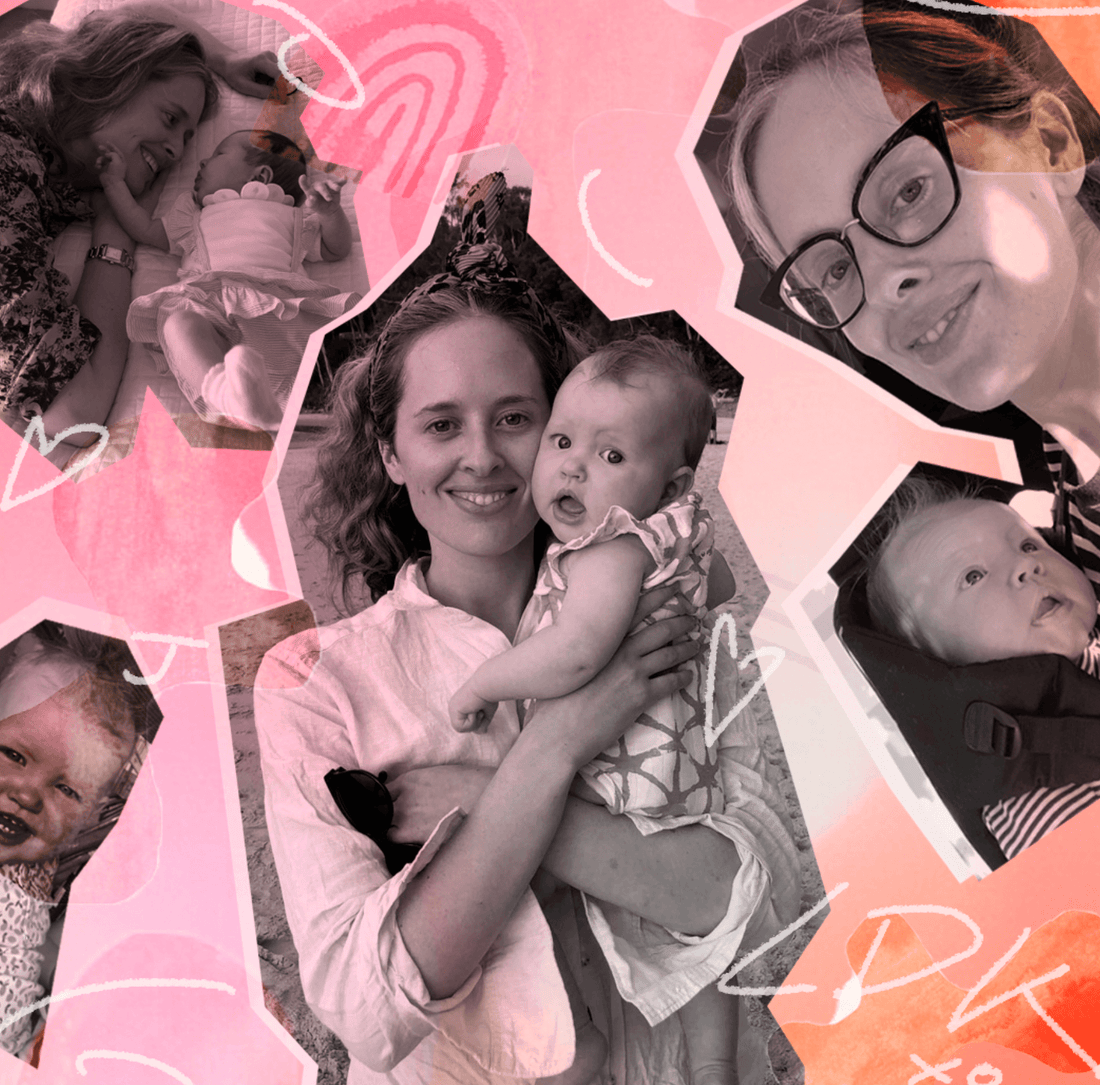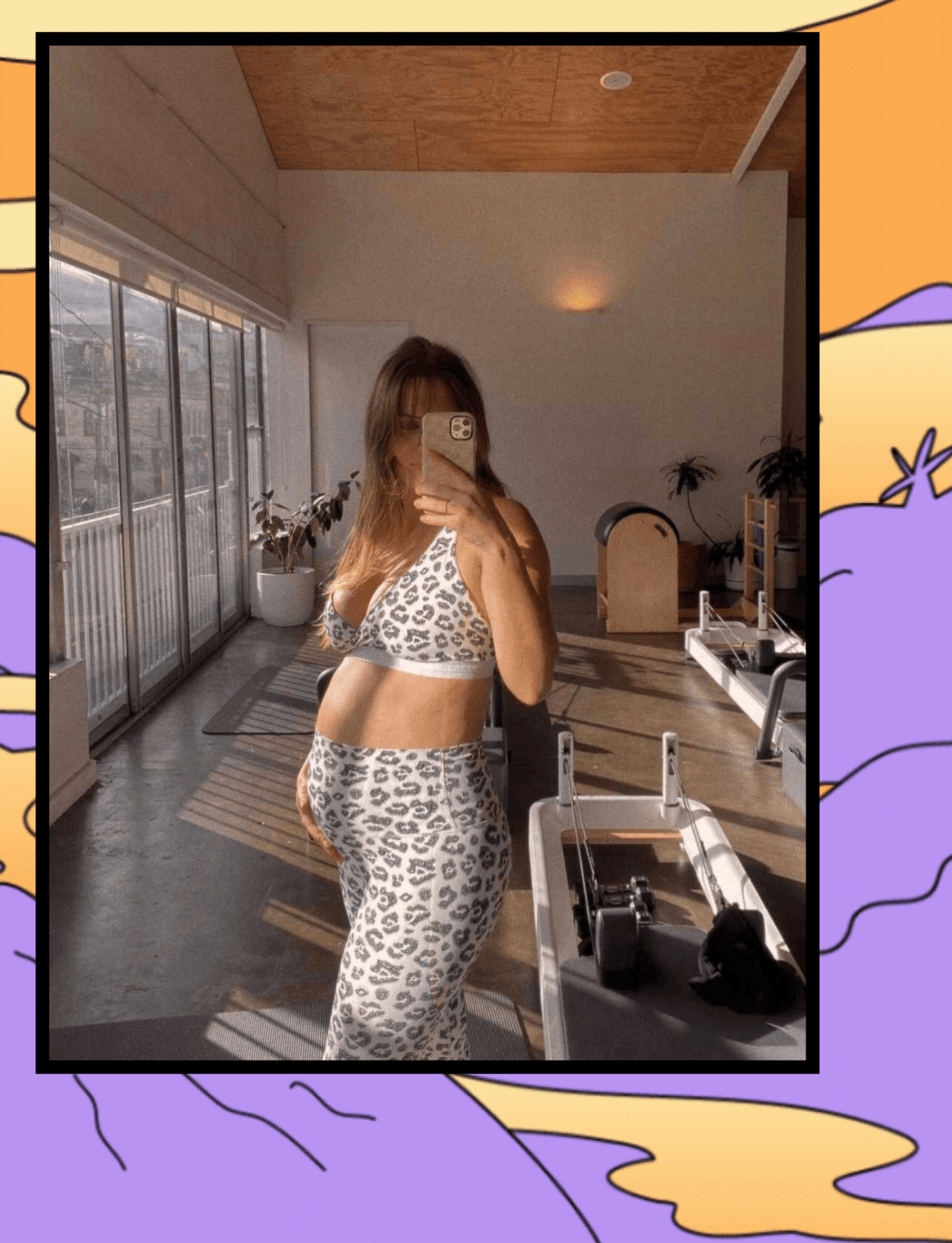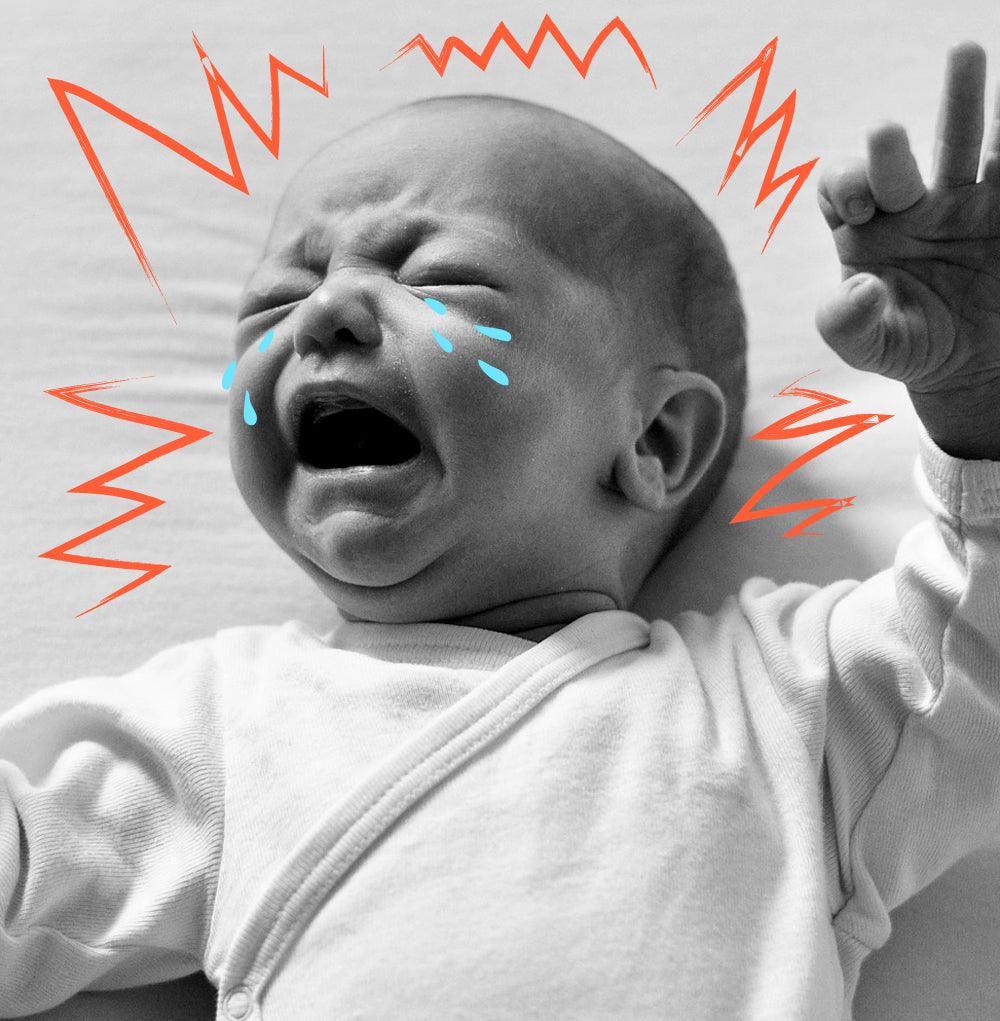Postpartum, Louisa de Kievit felt like an intern who'd been given the top job, here she shares how she found herself again.
In 2018, I was on my honeymoon, sitting in a bar in New York, chatting to a friend who had just had a pretty rough few months. Her baby boy struggled with breastfeeding and she was clearly traumatised by the experience. I remember her saying to me, “At some point in the experience. It’ll get you. Might be pregnancy. Might be labour. Might be later. But no one has a smooth ride.” I gave her an understanding nod but really, I had absolutely no idea what she was talking about. A year later, and six weeks postpartum, those words came back to me and I realised I was approaching my rough patch.
I was lucky to have had a cruisey pregnancy and birth. My daughter Jemima arrived in January 2019 and it was awesome. Physically, my recovery was good. She slept pretty well overnight and feeding went well too. The major struggle for me was adjusting to the new life and new identity as a mother. The responsibility of caring 24/7 for the baby overwhelmed me. I had many months of pregnancy to come to terms with this concept, but I think I must have had my head in the sand, because I was truly shell shocked. My close girlfriends all told me the same, ‘you just need time’. Which was true, but I felt like I was an intern being plucked off the office floor and sent into the CEO’s office to do the top job.
From where I stand now, three years postpartum, it’s frustrating realising I wasn’t living in the moment in those newborn days, but several factors contributed to it. For most of my adult life I tied my identity to my job, which probably had a lot to do with my motherhood identity crisis. Suddenly, I was at home with nothing to do except care for a little human. For whatever reason, I felt no self worth or purpose. I can see now that I was worried about becoming worthless at work. The company I worked for treated mothers, and in particular, new mothers poorly, and in the back of my mind I had a horrible feeling that I was going to be put out to pasture, relegated to shit tasks and projects upon my return. Because that’s what they did to part-time mothers and I’d watched from the sidelines as it had happened to many talented women. As it was, when I did return to that job, the pandemic hit and I was stood down. It stung because the person who covered my mat leave kept working. Eventually, I was made redundant and again, my mat leave cover stayed on. Nice, right? It was 2020 and what a way to treat women.
A toxic workplace was just one factor though. I can see now, I didn’t learn enough about what to expect. I had all the info there at my fingertips but didn’t attempt to research. Instead, I had tunnel vision on the labour - all I could focus on was getting the baby out of me. That part of the process is just one day, 24 hours, a blip in the scheme of things. The real focus should have been on myself, preparing for the change and asking all the questions: What sort of mum would I become? What does it mean to become a mum? What should I surround myself with to help me adjust? How did other mum friends cope?
"I had all the support in the world, an incredible partner and family, and yet found it so hard to ask for help. Instead, I was really hard on myself."
Then there was the newborn groundhog day feeling — wakeup, feed, sleep (well, try to get them to sleep) and repeat. It ground me down. I had all the support in the world, an incredible partner and family, and yet found it so hard to ask for help. Instead, I was really hard on myself. I kept saying, ‘toughen up’, ‘you’ve got it easy’, ‘get on with it’. I didn’t have a reflux baby, or one that woke constantly through the night. I didn’t have to worry about money, all I needed to do was enjoy my maternity leave and love a little baby. I was privileged. So why was I feeling so weird and anxious? Simultaneously I had the most magical moments in those first few months with Jemima. The highest highs and the lowest lows coexisted and this dichotomy was unlike anything I had ever experienced. Like a washing machine spin cycle for emotions. I also know now that there’s a big hormone shift when you stop breastfeeding which I think impacted me. Instead of dropping feeds slowly, I went from three feeds a day to none almost overnight.
It took a very honest, open conversation with a friend to get me feeling confident enough to seek help and I’m so thankful to her. She made me realise that what I was feeling was normal. In fact, according to Panda, 1 in 5 mums experience perinatal anxiety and/or depression. I made a plan with my GP, and went to a psychologist weekly, I went to yoga as often as I could, ate really well, and I made sure I met up with my friends every day. I would say it took about three months to feel ‘myself’ (or my new self) again. The experience made me realise that mental health is the same as physical health. It requires regular maintenance.
A big thing in those early days was staying cooped up at home for an entire day trying to get a baby to sleep. That wasn’t working for me, and I’m glad I made the call to put myself first. All the maternal health nurses told me that my baby needed to nap for X amount of hours per day, and that one of those naps needed to be in the cot and not out-and-about in the car or pram. Well, you know what? Sitting beside a cot and trying to tap my baby to sleep in a blacked-out room was not good for my mental health, so I stopped doing it. My baby didn’t sleep X amount of hours per day and there was nothing I could do about that. It’s not a big deal. She had a cat nap in the morning, and a cat nap in the afternoon. That’s all she needed and she’s turned out pretty damn amazing.
Having a baby helped me realise who I am and what my needs are. I love having time to myself. I need to work because it’s my creative outlet, and while the redundancy was a huge blow, and knocked my confidence, it turned out to be the best thing. It allowed me to find brands and people to work with who I admire. I’ve now found myself in the orbit of leaders and small startup companies who support working mums and are showing the big brands how it should be done. How it should have been done decades ago. The balance of this work and time with my child makes me a better mother. And I feel great about the mum I’ve become.
















